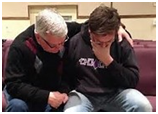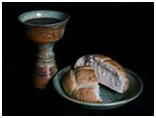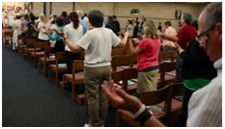[vc_row][vc_column][vc_single_image image=”949″ img_size=”full” alignment=”center”][vc_custom_heading text=”“A Piece of My Mind”” font_container=”tag:h1|font_size:50px|text_align:center|color:%232633ef” google_fonts=”font_family:Bitter%3Aregular%2Citalic%2C700|font_style:700%20bold%20regular%3A700%3Anormal”][/vc_column][/vc_row][vc_row][vc_column width=”2/3″][vc_column_text]
Advancing Christian Faith and Values,
Defending Religious Liberty for All,
Supporting Civility and the Common Good
through Preaching, Teaching, Writing, Activism and Reasoned Conversations
www.donaldshoemakerministries.com[/vc_column_text][/vc_column][vc_column width=”1/3″][vc_single_image image=”687″ img_size=”full” alignment=”center”][/vc_column][/vc_row][vc_row][vc_column][vc_custom_heading text=”July 4, 1776—Independence!” font_container=”tag:h1|font_size:30px|text_align:left|color:%23dd0000″][vc_column_text]
 “We hold these truths to be self-evident, that all men are created equal, that they are endowed by their Creator with certain unalienable Rights, that among these are Life, Liberty and the pursuit of Happiness. That to secure these rights, Governments are instituted among Men, deriving their just powers from the consent of the governed.” – Declaration of Independence
“We hold these truths to be self-evident, that all men are created equal, that they are endowed by their Creator with certain unalienable Rights, that among these are Life, Liberty and the pursuit of Happiness. That to secure these rights, Governments are instituted among Men, deriving their just powers from the consent of the governed.” – Declaration of Independence
[/vc_column_text][/vc_column][/vc_row][vc_row][vc_column width=”2/3″][vc_column_text]
“Give me your tired, your poor, ?
Your huddled masses,
yearning to breathe free, ?
The wretched refuse of your teeming shore, ? Send these, the homeless, tempest tost to me, ?
I lift my lamp beside the golden door.”
[/vc_column_text][/vc_column][vc_column width=”1/3″][vc_single_image image=”960″ img_size=”full” alignment=”center”][/vc_column][/vc_row][vc_row][vc_column][vc_custom_heading text=”– Inscription on the Statue of Liberty” font_container=”tag:h2|font_size:15px|text_align:center|color:%2359d600″][vc_custom_heading text=”Political Leftists can be more
Separatist and Self-righteous than the most Strident Religious Fundamentalists
” font_container=”tag:h1|font_size:30px|text_align:center|color:%23dd0000″][vc_column_text]
Seattle’s City Council is synonymous with leftism. But some are “lefter” than others. When council member Tim Burgess talked of reforming the juvenile justice system, he said “even some of our Republican friends” were on board.
 Burgess was interrupted by socialist councilmember Kshama Sawant. She rebuked his “Republican friends” comment and boasted she had no Republican friends—that the leftist cause had no place for this.
Burgess was interrupted by socialist councilmember Kshama Sawant. She rebuked his “Republican friends” comment and boasted she had no Republican friends—that the leftist cause had no place for this.
The American political system cannot survive under such extremism (Sawant doesn’t want it to survive). Isolation breeds dogmatic judgmentalism. Opponents aren’t just wrong—they are “bad.” Our system requires a respectful measure of collegiality and civility. All sides in politics must see this.
POSTSCRIPT: Striving for civility is all the more necessary, given the violence against our elected national representatives on June 14.
[/vc_column_text][/vc_column][/vc_row][vc_row][vc_column width=”2/3″][vc_custom_heading text=”Religious Liberty Vigilance –” font_container=”tag:h1|font_size:24px|text_align:left|color:%232925ed”][/vc_column][vc_column width=”1/3″][vc_custom_heading text=”1 Oppose AB 569″ font_container=”tag:h1|font_size:23px|text_align:left|color:%23dd0202″][/vc_column][/vc_row][vc_row][vc_column][vc_column_text]
 “Congress shall make no law respecting an establishment of religion, or prohibiting the free exercise thereof…” – 1st Amendment
“Congress shall make no law respecting an establishment of religion, or prohibiting the free exercise thereof…” – 1st Amendment
Why can’t California’s ultra-secular, radical legislature leave religion alone?!!! Assembly Bill 569 has been approved by a wide margin in the Assembly and is now in the state’s Senate.
This bill would require religious organizations to provide information to their employees on abortion services (“reproductive health care”). Religious organizations could not exercise discipline except for ministers.
My information here is necessarily brief. Californians, please read this bill at:
www.leginfo.legislature.ca.gov/faces/billNavClient.xhtml?bill_id=201720180AB569
Contact your state senator and, if and when necessary, the governor.
Outside of California? Watch for similar legislation in your own state.
[/vc_column_text][vc_column_text]
 Religious Liberty Vigilance – 2
Religious Liberty Vigilance – 2
“…no religious Test shall ever be required as a Qualification to any Office or public Trust under the United States.”
– Article VI of the U.S. Constitution
But the U.S. Constitution did not get in the way of senators who oppose a Christian nominee for political appointment because of his beliefs!
 “I understand that Christianity is the majority religion. But there are other people who have different religions in this country and around the world. In your judgment, do you think that people who are not Christians are going to be condemned?” * – Sen. Bernie Sanders (I-VT)
“I understand that Christianity is the majority religion. But there are other people who have different religions in this country and around the world. In your judgment, do you think that people who are not Christians are going to be condemned?” * – Sen. Bernie Sanders (I-VT)
Those words were addressed to Russell Vought, President Donald Trump’s pick for deputy director of the Office of Management and Budget. Sanders repeatedly challenged Vought’s beliefs and (therefore) his qualification to serve in public office.
It didn’t matter that Vought responded, “As a Christian, I believe that all individuals are made in the image of God and are worthy of dignity and respect, regardless of their religious beliefs,” and “I believe that as a Christian, that’s how I should treat all individuals…” Actually, these words convey a higher view of human dignity (such dignity being imbedded in the nature and work of God) than the secularist Sanders’ philosophical system could yield. But that didn’t matter to Sanders, who said, “This nominee is really not someone who is what this country is supposed to be about. I will vote no.”
Michael Gerson poignantly notes the danger in this thinking. “A pluralism too weak to protect Christian believers is too weak to protect Muslim believers, and vice versa. And both have the right to think they are right.”
Defenders of religious liberty should side with Vought. What counts is not what he believes about salvation in the hereafter, but how he treats people and would do his job in the here and now.
Thomas Jefferson realized this: “But it does me no injury for my neighbor to say there are twenty gods or no God. It neither picks my pocket nor breaks my leg” (“Notes on Virginia”, 1782). Jefferson believed one’s doctrines are beyond the judgment of government (at least they should be, but Sen. Sanders shows they are not!): “…religion is a matter which lies solely between man and his God, …he owes account to none other for his faith or his worship, …the legislative powers of government reach actions only, and not opinions.”
In fact, Jefferson believed that the First Amendment’s “wall of separation” (to use his metaphor) between church and state guaranteed freedom to believe as one wills (see: “Letter to Danbury Baptist Association”, January 1, 1802).
Rather than debating a nominee’s doctrines, Mr. Sanders and other legislators** should defend nominees’ constitutional rights and not make religion a test for political office, regardless of how odious their beliefs appear to be in the eyes of critics.
Nothing is gained in politics or in civil discourse by either airbrushing religious differences or excluding one another from public service over them.
* “Salvation only through Jesus Christ” is a core belief of Evangelical Christianity. Secular inclusivism regards this as heresy and insists on generic notions of religion that make no judgments (or bad judgments) on many social issues or on ultimate issues like salvation.
** Senator Chris Van Hollen (D-MD) chimed in: “I’m a Christian, but part of being a Christian, in my view, is recognizing that there are lots of ways that people can pursue their God…” This senator should do legislation and not pretend to be a theologian.
NOTE: In an Addendum at the end of this newsletter I reproduce an edited version of my blog on what Christianity and Islam teach about Jesus.
Religious Liberty Victory – The U.S. Supreme Court has ruled 7-2 that Trinity Lutheran Church of Columbia, Missouri should not be denied public funds available to other non-profits to install a rubberized playground made of recycled tires. This is a good decision. Governments should not prefer religion over non-religion. Nor should it (as in what led to this case) prefer non-religion over religion. The assistance to this church’s school passes all the “non-establishment of religion” litmus tests of Lemon v. Kurtzman (1971).
[/vc_column_text][vc_column_text]
The Protestant Reformation at 500
1517 – 2017
Lessons from the Reformation #2
The Freedom of the Christian
[/vc_column_text][/vc_column][/vc_row][vc_row][vc_column width=”1/4″][vc_single_image image=”925″ img_size=”full” alignment=”center”][/vc_column][vc_column width=”1/2″][vc_column_text]
“A Christian is the most free lord of all,
and subject to none.
A Christian is the most dutiful servant of all, and subject to all.”
– Martin Luther, On Christian Freedom (1520)
[/vc_column_text][/vc_column][vc_column width=”1/4″][vc_single_image image=”926″ img_size=”full” alignment=”center”][/vc_column][/vc_row][vc_row][vc_column][vc_column_text]In his typical dialectical fashion, Luther set forth the thoroughly biblical idea of Christian liberty. “You, my brothers, were called to be free. But do not use your freedom to indulge the sinful nature; rather, serve one another in love” (Galatians 5:13 New International Version). Free, yet a servant.
How did the Reformers set forth their concept of Christian Freedom? I will focus mostly on how the Swiss reformer John Calvin answers this.
The mainstream reformers taught that the moral law of God is still relevant, even what is in the Law of Moses. It is found elsewhere in the Bible too.
First use of God’s Law: the moral law convicts us of our sin by showing us God’s righteous standards. This should lead us to seek God’s forgiveness
(* Institutes of the Christian Religion, Book 2, Chapter 7, Sections 6-9).
Second use: the civil function of serving as a standard and a deterrent to protect society from those who would do it injustice (Institutes, 2.7.10-11).
Calvin saw a third use of the Law for those released from the Law’s condemning power**: “Here is the best instrument for them to learn more thoroughly each day the nature of the Lord’s will” (2.7.12).
How does Christian Freedom fit into these notions of the role of God’s Law?
First, through God’s grace and forgiveness we free ourselves of all attempts at saving ourselves through our own efforts of law-keeping (3.19.2).
Second, free now of the guilt and judgment of God’s law, our consciences are now able to observe God’s moral standards. As a guide to believers, the Law teaches us and urges us to do what is right. It articulates the standards that underlie the two great Love Commands (love God, love your neighbor). We are filled with joy and hope as we find the Law both directing us and motivating us to obey (3.19.4-5).
Calvin’s third aspect of Christian Freedom takes us to what we call “indifferent things”—things neither good or bad in themselves; things which God has put under our power, which we are to use with moderation so there is a difference between liberty and licentiousness. [See my June newsletter on this point.]
This teaching is more important than people commonly think, because once legalism (which forbids our use of “indifferent things”) ensnares our consciences we enter “a long and inextricable maze, not easy to get out of” (3.19.7). This quote is followed by one of my favorite sections of Calvin, where he takes us down this “long and inextricable maze” to point out the spiritual bondage legalism brings upon our consciences “to the point of considering it wrong to step upon a straw” across our path. ***
Calvin’s teaching here is badly needed by rule-bound Christians today.
* The Institutes was Calvin’s life-long project to set forth his understanding of what the Christian Faith teaches. His first edition was written when he was only 26!
** This “third use of the law” was primary for Calvin (2.7.12; 3.19.2). Luther never explicitly set it forth—his thinking was too dialectical for that. Some with anti-commandment bias deny he held the law had any role to play in Christian lives. I find this impossible to accept given his teachings, for example, on the Ten Commandments. Luther’s theological successor Philip Melanchthon embraced the “third use of the law”, thus aligning himself with Calvin.
*** This “freedom of conscience” should not always be acted upon. We must not offend those of weak conscience. And sometimes the political order prevents us from exercising the freedom our consciences assure us that we have (think of Prohibition on this one, or legal limits on when and where we may pray in public). External limits to our use of Christian Freedom, though, must never be confused with binding our consciences. Calvin saw bondage of conscience coming from church traditions and customs, from legalistic people, from interpreting the Bible legalistically, and from our own “uncontrolled imagination” that imposes “moral burdens that have no relationship to the Word of God”.[/vc_column_text][/vc_column][/vc_row][vc_row][vc_column][vc_column_text]
Bible Insight—Right Steps for a New Christian
Some of the most helpful steps new Christians can take to begin and grow in their faith are located in the Story of Pentecost (Book of Acts, chapter 2). For us who have been Christians for, well, a long time (in my case, since June, 1954!), it doesn’t hurt to assess how well we are walking also.
The First Step – Christian Baptism
 “Those who accepted his message were baptized…” (Acts 2:41 NIV).
“Those who accepted his message were baptized…” (Acts 2:41 NIV).
Picture to right:
Yours truly emerges from the Pacific Ocean after baptizing his granddaughter, Tyler.
The message they accepted was about Jesus—his life ministry, death, resurrection and exaltation to heaven. The Apostle Peter then told the inquiring crowd how to respond rightly to the message: “Repent and be baptized, every one of you, in the name of Jesus Christ for the forgiveness of your sins. And you will receive the gift of the Holy Spirit” (verse 38).
So baptism presumes genuine repentance (“Once I thought little about God, Jesus, how my life was going, and what sin is; now I’ve changed my mind and heart and from this day forth, under God, I will change my life’s direction.”).
The proper context for declaring this repentance and confessing Jesus Christ as Lord and Savior is in the water of baptism. If we’ve made the declaration and confession without baptism, we should get baptized as quickly as is practical. *
Baptism, therefore, is the first step. Have you taken it? Pastors and churches, are you teaching and encouraging it? Remember: in what we call “The Great Commission” (Matthew 28:19) Jesus said, “Make disciples…baptizing them…” We’ve tended to separate baptism from discipleship, but we can’t. Not if we want to do discipleship “The Jesus Way”!
Steps two, three, four and five—four spiritual habits to nourish
 “They devoted themselves to [I like the King James reading: “They continued steadfastly in”] the apostles’ teaching and to the fellowship, to the breaking of bread and to prayer” (Acts 2:42).
“They devoted themselves to [I like the King James reading: “They continued steadfastly in”] the apostles’ teaching and to the fellowship, to the breaking of bread and to prayer” (Acts 2:42).
Unlike baptism, these steps are walked over and over and over. In the Greek text there are six definite articles (“the”) in this list of spiritual habits. Clearly, the writer has specific, regular duties in mind. For example, not just any kind of prayer (like praying privately at home, important as that is), but “THE PRAYERS” (plural—specific prayers when part of “the church gathered”).
Step 2 – learn “the teaching of the apostles”
 We need to learn the teachings of the apostles, especially when we’re together under the ministry of pastors and teachers (now that the apostles Jesus chose are gone). This means we need to learn the New Testament.
We need to learn the teachings of the apostles, especially when we’re together under the ministry of pastors and teachers (now that the apostles Jesus chose are gone). This means we need to learn the New Testament.
Many congregations don’t teach “the apostles’ teaching” much anymore. We’ve found imitations: the “prosperity gospel,” pop psychology, political gospels, secular ideals, and other dilutions or even anti-gospels.
One great way a church can continue in the apostles’ doctrine is to recite “The Apostles Creed” frequently. Now the apostles didn’t write it, but it is an ancient, beautiful, simple summary of the basics of the apostles’ teaching.
Step 3 – Experience “the fellowship” with others in the church family
This refers to experiences of “fellowship” (koinonia) where we take time to really experience what it means to love one another as Jesus loved us. It may be financial assistance or other help, meals together, encouragement or correction, spending time and prayer with others to help in their unique struggles, weeping with those who weep, rejoicing with those who rejoice, ministering our spiritual gifts to one another, and more.
“Fellowship” really underscores our togetherness within the church family. You can study doctrine on your own, but you can’t fellowship on your own!
Step 4 – Observe “the breaking of the bread”
I like the experience of breaking bread—a tangible sign of spiritual unity with Jesus and one another. Here a specific event of breaking bread is in mind. While it can’t be proven beyond a doubt, this likely refers “the breaking of the bread” in the Communion Service (Acts 20:7; 1 Corinthians 11:23-27). Communion was typically celebrated during a fellowship meal—good idea.
 Regular, even weekly, participation in Communion (a renewing and nourishing sign of the sacrificial death of Jesus and what it accomplishes for us and in us by faith) is a key part of a good, healthy spiritual walk.
Regular, even weekly, participation in Communion (a renewing and nourishing sign of the sacrificial death of Jesus and what it accomplishes for us and in us by faith) is a key part of a good, healthy spiritual walk.
Step 5 – Engage in “the prayers” of the church
These are prayers we pray together, whether listening to others pray (and affirming the prayer with the “Amen”) or praying them in unison, like when we pray “The Lord’s Prayer.” “Prayers” may include worship and song.
 At the very least we must pray together for:
At the very least we must pray together for:
• The blessing of God on our church, its leader, and our gatherings
• The spread of the gospel
• The needs of the members
• Our community and nation, our government and its leaders at all levels
• The persecuted church around the world
Have you repented of your sins? Have you submitted yourself to Christian baptism? Are you continuing faithfully in the apostles’ doctrine, the fellowship, the breaking of the bread, and the prayers?
Let Acts 2:41-42 help you in your Christian walk. And share the word!
* In the New Testament and Early Church water baptism was the common context for confessing Jesus. Modern evangelicals have tolerated a gap between confession and baptism and thus we’ve created confusion in our understanding of baptism. The tradition of “walking forward in church to confess Christ” has preempted “walking into the water to confess Christ” – a substitute sacrament! We wouldn’t argue so much over whether baptism washes away sins if we kept confession and baptism together (see Acts 22:16).[/vc_column_text][/vc_column][/vc_row][vc_row][vc_column width=”1/4″][vc_single_image image=”567″ img_size=”full” alignment=”center”][/vc_column][vc_column width=”3/4″][vc_custom_heading text=”Don’s Upcoming Ministries” font_container=”tag:h1|font_size:30px|text_align:left|color:%230316bc”][vc_column_text]July 25-27 – Attend the annual conference of the Fellowship of Grace Brethren Churches, meeting in Fremont, Ohio. Present resolutions to the delegates as Chair of the Social Concerns Committee. Participate with the military chaplains as Associate Military Endorsing Agent.[/vc_column_text][/vc_column][/vc_row][vc_row][vc_column][vc_column_text]July 30 – Speak at Sunday Morning Worship Services at Grace Community Church of Seal Beach (8:00, 9:30, 11:00 services). Message on the ministries of Priscilla, Aquila, and Apollos (Book of Acts, chapter 18): “Leaders Training Leaders.”
September 6 – Speak at an evening Bible Study of Grace Community Church on “The Five Points of Calvinism.”
Listen to Don’s sermon on Pentecost Sunday (June 4)
“Come, Holy Spirit—The Day of Pentecost” (Acts 2:1-42)
http://gracesealbeach.org/sunday/sermons
(Under “Sermons” go to “Come, Holy Spirit”, sermon for June 4)
Website: www.donaldshoemakerministries.com
Contact me at: donaldshoemakerministries@verizon.net
[/vc_column_text][vc_column_text]
Addendum:
What Christianity and Islam Teach about Jesus
(Excerpt from my blog: “What Do Christianity and Islam Teach about Jesus?”)
Jesus Christ and his life and death as highlighted by Good Friday and Easter are critical parts of the faith Christians confess.
I believe in God, the Father Almighty,
the Maker of heaven and earth,
and in Jesus Christ, His only Son, our Lord:
Who was conceived by the Holy Spirit, born of the virgin Mary,
suffered under Pontius Pilate,
was crucified, dead, and buried.
He descended into Hell; on the third day he rose again from the dead.
– The Apostles Creed (early Christian confession)
…It is important for Muslims and Christians to understand each other because we must learn to inhabit this finite world together in shalom-salaam and because many of us live together in America. Christians must relate to Muslims as those who share the likeness of God through our common humanity (Genesis 1:27; Acts 17:28-29) and, if we share a common American citizenship, as those who possess with us the rights and responsibilities of citizenship and the free exercise of religion (without having an established religion).
Now, what can we say about Christianity and Islam?
These two common grounds are shared by the two faiths and also by Judaism:
• Monotheism – the belief there is only one true God.
• Abrahamic Roots – Judaism, Christianity and Islam trace their origin to the biblical Abraham (Genesis 12+).
But Christianity must be distinguished from Islam on several critical points, especially those that relate to what orthodox Christianity teaches about Jesus. I will limit my comments to this subject, with the caveat that what one teaches about Jesus influences what one teaches about God. When I use the word “Christianity” I am referring to the Christian faith as it embraces the teachings of the New Testament and the confessions of the ecumenical creeds, not to everything that might wear the title.
Both religions teach that Jesus was born to Mary who was yet a virgin. And Jesus performed many miracles, as the Christian Gospels state. Interestingly, the Qur’an (19:27-33) goes further by actually having Jesus speak from the cradle somewhat in defense of his mother (this may be seen as a prolepsis).
Both religions believe Jesus was a prophet. Islam sees Jesus as a prophet in a long tradition of prophetic voices culminating in Mohammed. Christianity sees Jesus himself as the culmination of the prophetic office—the Second Moses, God’s Final Word…
While Christianity sees Jesus as a prophet (and while the ethical teachings of Jesus can be a great starting point for discussions with non-Christians), Christians confess Jesus to be more than a prophet. He is, according to the Bible’s best-known verse (John 3:16), God’s “only begotten son.”
Islam cannot accept this. Its belief in God’s absolute uniqueness abhors any notion of God having a son. This is a core understanding of Islam.
Say, “He is Allah, the One;
Allah, the Eternal, Absolute;
He begets not, and neither is He begotten;
And there is nothing that can be compared to Him.” – Qur’an 112:1-4
Furthermore, according to Islam, Jesus is not “from the beginning” for he lived a finite, short life 2000 years ago. Nor should he be worshipped.
Christianity’s understanding is that Jesus, as the unique Son of God, specially revealed God to us as none other could do (John 1:1, 2, 14, 18 ESV):
In the beginning was the Word [Jesus Christ], and the Word was with God, and the Word was God.
He was in the beginning with God. All things were made through him, and without him was not any thing made that was made.
And the Word became flesh and dwelt among us, and we have seen his glory, glory as of the only Son from the Father, full of grace and truth.
No one has ever seen God; the only God*, who is at the Father’s side, he has made him known. [* Some Greek texts read: “only begotten son”.]
Christianity teaches that Jesus died on the cross, and his death was “for our sins.” Christians debate exactly how this “works” – the doctrine of Jesus’ atoning death that removes our sins raises many points of discussion. But the fundamental confession “Christ died for our sins” is biblical, critical and non-negotiable—a sine qua non of The Faith.
Islam rejects the crucifixion of Jesus and, with it, any thought that his death was redemptive. I have read this Muslim explanation: while it appeared to many that Jesus died on the cross, in reality Jesus was miraculously protected by God and the crucifixion was the death of another…
(See the entire essay under “blogs and newsletters” at: www.donaldshoemakerministries.com)[/vc_column_text][/vc_column][/vc_row]

